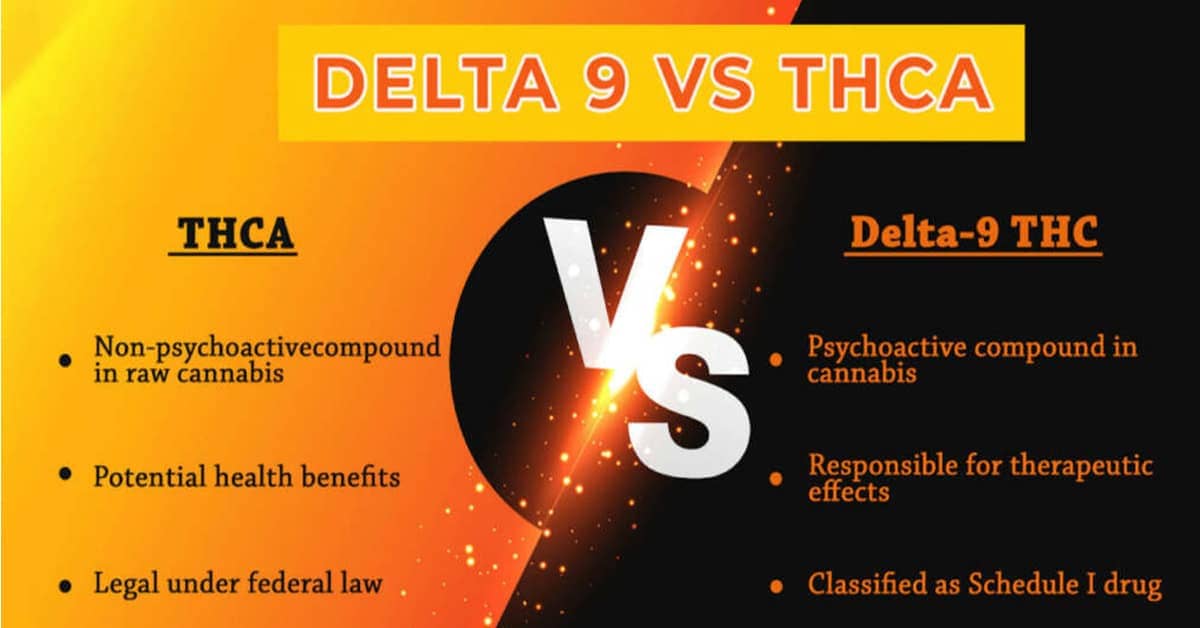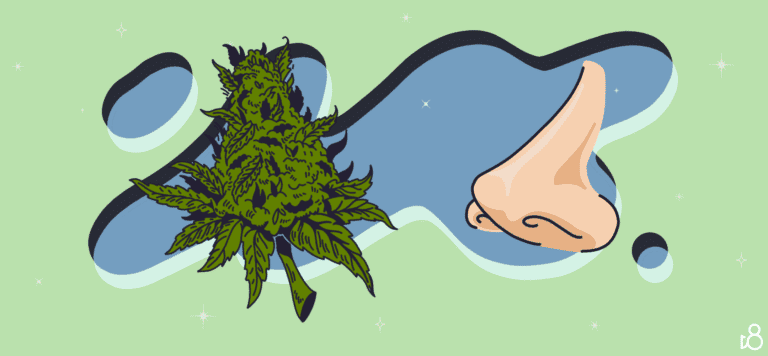THCa vs Delta 9: Understanding the Differences
Dive into the world of **cannabis**, and you’ll discover two fascinating family members: **THCa** and **delta-9-THC**. Picture THCa as a secret superhero lurking in unsmoked weed, not shooting you into cosmic journeys, but loaded with awesome skills. It’s the secret stone that morphs into delta-9-THC, the shining star guiding you on cosmic quests. But here’s the kicker: munching on raw THCa doesn’t send you to the moon. It’s like grabbing the awesome goodies without jetting off into space, turning heads with its health marvels minus the psychedelic circus. If diving into cannabis without the spacewalk sounds good, stay put. You’re about to discover how THCa could be the ally you never knew existed.
Table of contents
- Chemical Composition and Properties
- Psychoactive Effects and Potency
- Therapeutic Benefits and Medical Potential
- Consumption Methods and Available Products
- Legal Status and Market Availability
- Dosage, Effects, and Individual Preferences
- Safety Considerations and Potential Risks
- Understanding Cannabinoid Receptors
- Innovations in Cannabinoid Science
- Key Takeaways
Delta-9-THC, or simply delta-9, is what most people think of when they consider the effects of cannabis. It binds to cannabinoid receptors in your brain, leading to the euphoria or intoxication that cannabis is famous for. In contrast, THCa does not produce these effects in its raw state. However, when exposed to heat, a process known as decarboxylation, THCa gets converted into delta-9-THC. This is typically achieved through smoking, vaping, or cooking the cannabis plant material.
Understanding the differences between THCa and delta-9 is crucial for both consumers and professionals within the cannabis industry. It not only helps in selecting the appropriate product for your needs but also plays a significant role in the legal landscape surrounding cannabis, where the concentrations of different cannabinoids can determine the legality and classification of the plant material, such as in the production of hemp.
Chemical Composition and Properties
Understanding the chemical structure and properties of THCa and Delta 9 THC is crucial in differentiating their roles and effects within the cannabis plant. These cannabinoids share a similar molecular lineage but have distinct features and behaviors, especially when exposed to heat.
Chemical Structure of THCa vs Delta 9 THC
Tetrahydrocannabinolic acid (THCa) and Delta 9-tetrahydrocannabinol (Delta 9 THC) are two naturally occurring compounds in the cannabis plant. THCa is a precursor to Delta 9 THC and features a carboxylic acid group in its molecular structure. When you look at their structures, the presence of the carboxylic acid group in THCa adds extra weight and introduces a different functionality when compared to Delta 9 THC. Their molecular structures dictate their unique physical and chemical properties, with Delta 9 THC being psychoactive, while THCa is not.
Decarboxylation Process
The transition from THCa to Delta 9 THC occurs through a process known as decarboxylation. This is the removal of the carboxylic acid group from the THCa molecule using heat. When you apply heat, as in smoking or vaporizing cannabis, THCa loses a carbon dioxide molecule, converting it into the psychoactive Delta 9 THC. This conversion is a key step in how cannabinoids affect the body, significantly altering the potential benefits and effects.
Cannabinoids in the Cannabis Plant
Within the cannabis plant, cannabinoids like THCa and Delta 9 THC occur in different concentrations, influencing the plant’s overall properties. While you may primarily associate the cannabis plant with its euphoric effects, mostly due to Delta 9 THC, it’s important to understand that THCa represents the non-psychoactive side, which has its own potential benefits. Besides THCa and Delta 9 THC, many other cannabinoids contribute to the complex pharmacological profile of the cannabis plant, but these two are often at the center of discussions regarding its usage and effects.
Psychoactive Effects and Potency
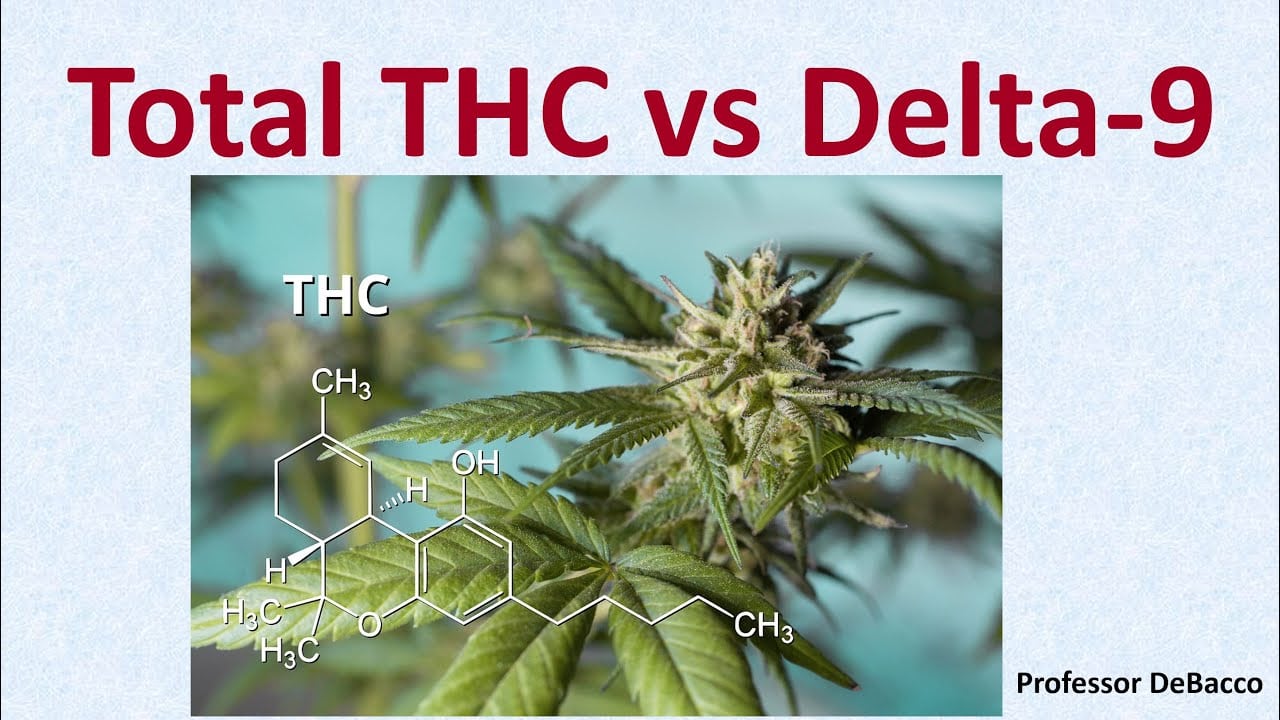
Understanding the psychoactive effects and potency of cannabinoids like THCa and Delta 9 THC is crucial in grasping how they interact with your body’s endocannabinoid system.
The Relationship Between THCa and Psychoactivity
THCa, or tetrahydrocannabinolic acid, is a non-psychoactive cannabinoid found in raw and live cannabis. As the precursor to Delta 9 THC, THCa does not produce euphoric effects on its own. However, through a process called decarboxylation, which occurs when cannabis is heated, THCa is converted into the psychoactive Delta 9 THC, revealing its potential for euphoric experiences.
Delta 9 THC and Euphoric Experience
Delta 9 THC is the major psychoactive component in cannabis that binds to CB1 receptors in your brain, resulting in the euphoric experience commonly associated with marijuana use. Its potency, or the strength of its effects, can vary greatly depending on the strain and individual user tolerance. High levels of Delta 9 THC are typically linked to more intense psychoactive effects.
Tolerance Development
Regular exposure to Delta 9 THC can lead to tolerance development, a common phenomenon where you may require larger doses to achieve the same psychoactive effects over time. This tolerance is a result of changes in how your CB1 receptors respond after repeated activation by THC, potentially leading to a decrease in the compound’s overall euphoric potency for the individual.
Therapeutic Benefits and Medical Potential
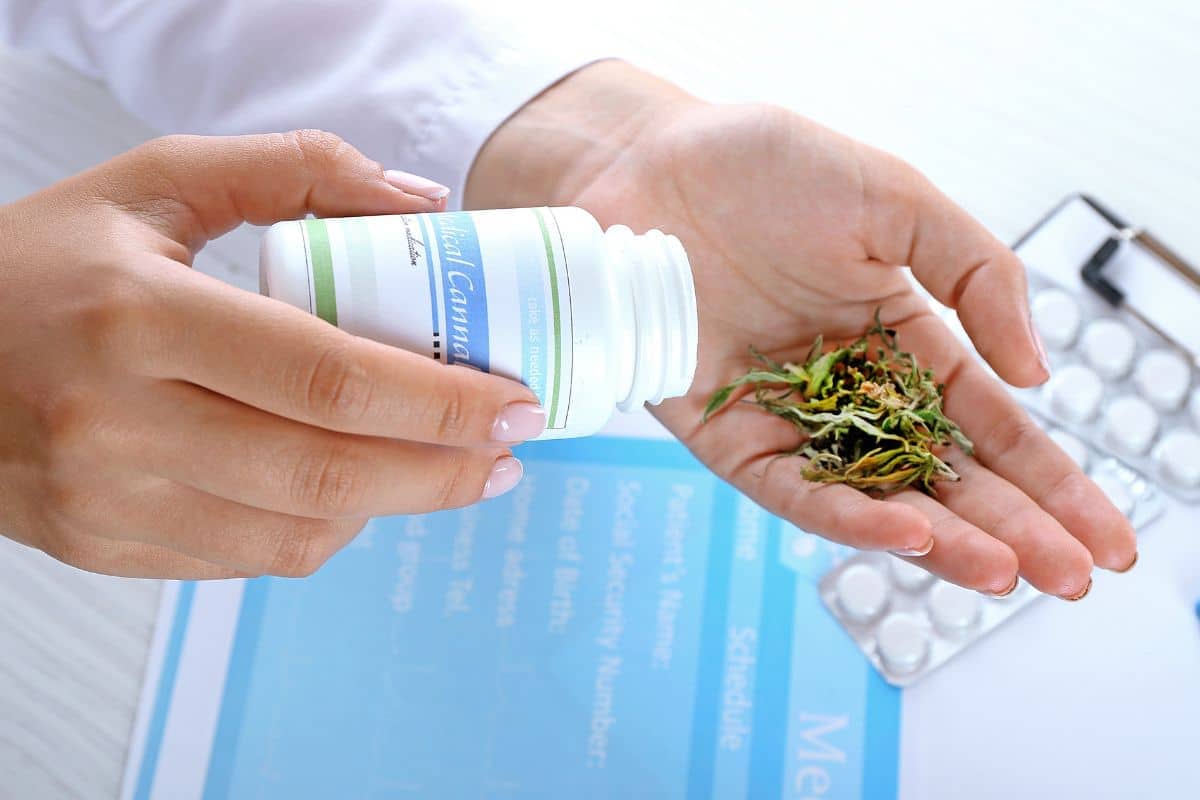
Exploring the medical and therapeutic potential of THCa and Delta-9 THC reveals promising avenues for treating a range of conditions. Both compounds exhibit distinct properties that may benefit individuals suffering from chronic pain, inflammation, and neurodegenerative diseases.
Anti-inflammatory and Neuroprotective Properties
THCa, the non-psychoactive precursor to Delta-9 THC, has been recognized for its anti-inflammatory properties. It may be beneficial in treating conditions like arthritis and autoimmune disorders. Research suggests THCa has neuroprotective capabilities, which could play a role in combating neurodegenerative diseases such as Parkinson’s disease.
Delta-9 THC also exhibits anti-inflammatory effects and is being studied for its potential to protect against the progression of various medical conditions by safeguarding neurological pathways.
Pain Management and Chronic Conditions
Evidence suggests that Delta-9 THC has significant analgesic effects that can help you manage pain, especially in chronic conditions. Its use might offer relief from chronic pain and is being evaluated for its efficacy in reducing discomfort associated with conditions like multiple sclerosis.
- THCa: Potential to relieve pain due to its anti-inflammatory nature without the psychoactive effects.
- Delta-9 THC: Acts on the central nervous system to alleviate pain and improve quality of life for patients with painful medical conditions.
Use in Appetite Stimulation and Nausea Control
Delta-9 THC has well-documented antiemetic properties, making it valuable for controlling nausea and vomiting, especially for patients undergoing chemotherapy. It also effectively stimulates appetite, which can be beneficial for individuals experiencing unwanted weight loss due to medical issues or treatments.
- Appetite Stimulation: Delta-9 THC can trigger hunger signals, aiding in maintaining proper nutrition.
- Nausea Control: Both Delta-9 THC and THCa offer antiemetic benefits, potentially improving the quality of life for patients facing chemotherapy-induced nausea and vomiting.
Consumption Methods and Available Products
THCa and Delta-9 THC are both cannabinoids found in cannabis, with different properties and available in various product forms. Whether you’re using cannabis for recreational purposes or exploring its other uses, understanding these forms and their consumption methods is crucial.
Smoking and Vaporization
Smoking: You can smoke cannabis flower in joints, pipes, or bongs, which contain both THCa and Delta-9 THC. Upon heating, THCa converts into Delta-9 THC, the compound known for its psychoactive effects.
- Pros: Fast onset of effects.
- Cons: Potential respiratory irritation.
Vaporization: Vaping involves the use of devices like vape pens or dab rigs. You can use products such as THCa isolate, which vaporizes at a lower temperature, or vape cartridges filled with Delta-8 or Delta-9 THC oil.
- Pros: Less harsh than smoke, precise dosing.
- Cons: Requires special equipment.
Tinctures, Edibles, and Topicals
Tinctures: These alcohol-based cannabis extracts are administered under the tongue, with THCa and Delta-9 options available. Because they bypass the digestive system, tinctures can offer a more direct effect.
- Pros: Discreet, easy dose control.
- Cons: Taste may be undesirable for some.
Edibles and Capsules: Cannabis-infused edibles, like gummies or brownies, and capsules contain predefined amounts of cannabinoids, such as Delta-9 THC or THCa.
- Pros: Long-lasting effects, no respiratory impact.
- Cons: Delayed onset, challenging to dose accurately.
Topicals: Creams and lotions infused with cannabis can be applied directly to the skin. While non-intoxicating, they can offer localized benefits.
- Pros: Targeted application, non-psychoactive.
- Cons: Effects limited to application area.
Legal Status and Market Availability

In exploring the cannabis landscape, you should be aware of the varying legal frameworks that govern the use of chemicals such as THCa and Delta 9 THC, as well as how they impact the accessibility of these substances at dispensaries.
Legality of THCa and Delta 9 THC
THCa (Tetrahydrocannabinolic acid) is the non-psychoactive precursor to Delta 9 THC found in raw cannabis plants. THCa itself is not scheduled under the Controlled Substances Act, whereas Delta 9 THC (delta-9-tetrahydrocannabinol), the primary intoxicating compound in cannabis, is federally illegal under the Controlled Substances Act. However, products derived from hemp with less than 0.3% Delta 9 THC on a dry weight basis are considered legal under the 2018 Farm Bill. Despite federal law, several states have legalized Delta 9 THC for either medicinal or recreational cannabis use, creating a patchwork of regulations that you must navigate carefully.
- Legally Speaking:
- THCa: Not scheduled federally
- Delta 9 THC: Scheduled, illegal federally (with state exceptions)
- Hemp-derived products: Legal if <0.3% Delta 9 THC on a dry weight basis
Cannabis Dispensaries and Accessibility
Your access to products containing THCa and Delta 9 THC largely depends on state laws. In states where cannabis is legalized either medically or recreationally, you can typically find dispensaries licensed to sell a range of cannabis products. The availability of these products varies, and often dispensaries will offer a mix of high-THCa strains, which are non-intoxicating, as well as products that contain varying levels of psychoactive Delta 9 THC. Products are often labeled with their cannabinoid profile, including the percentages of THCa and Delta 9 THC, so that you can make informed choices about their psychoactive potential and legality.
- Access Points:
- Medical dispensaries: May require a doctor’s recommendation
- Recreational dispensaries: Generally open to adults 21 and over
- Product labeling: Key for understanding cannabinoid content
Dosage, Effects, and Individual Preferences

When understanding cannabinoids like THCa and Delta 9, it’s essential to consider the nuances of dosage, their distinct effects, and how they may align with your personal preferences and needs.
Determining Appropriate Dosage
The appropriate dosage of cannabis products is determined by a range of factors including your experience with cannabinoids, your intended therapeutic benefits, and your body’s unique chemistry. For novices or those looking to avoid intoxication, starting with a lower dose and gradually titrating up is prudent. Research shows that dosages as low as 2.2 mg of THC have been administered in studies, highlighting the importance of dosage control for mitigating risks such as anxiety or discomfort.
Comparing the Effects of THCa and Delta 9
THCa and Delta 9 differ significantly in their effects on the body. While THCa does not produce intoxicating effects, it has been noted for its potential anti-inflammatory benefits, making it appealing if you seek therapeutic effects without the high. On the other hand, Delta 9-THC is known for its psychoactive properties, which can lead to euphoria as well as increased appetite and potential relief from nausea. However, it can also cause anxiety in larger doses.
- THCa: Non-intoxicating, potential anti-inflammatory effects.
- Delta 9: Psychoactive, can stimulate appetite and alleviate nausea but may cause anxiety.
Adapting to Individual Needs
Your response to cannabinoids like THCa and Delta 9 can significantly vary due to individual preferences and physiological differences. Some may prefer the non-psychoactive route for therapeutic benefits, minimizing discomfort, while others might be looking for the intoxicating effects of Delta 9 to address issues like appetite stimulation. Cannabinoids like CBD, CBG, and CBN are also relevant, as they can influence the overall effects of a cannabis product, contributing to a personalized experience. Your tolerance will also play a key role, as it dictates how your body reacts to certain doses, calling for careful monitoring and potentially adjusting dosage over time.
Safety Considerations and Potential Risks
When exploring the use of THCa and Delta-9-THC, safety is a paramount concern. You should understand that Delta-9-THC has psychoactive properties, which can lead to intoxication. While the therapeutic benefits and medicinal potential of cannabinoids are under study, misjudging the dosage could lead to adverse effects such as impaired cognitive function, anxiety, or in some cases, more severe symptoms.
THCa, on the other hand, is non-intoxicating in its raw form and has not been shown to produce psychoactive effects. However, it can convert to Delta-9-THC through decarboxylation, a process that occurs with heat or over time, which implicates similar risks associated with THC consumption.
Concerning risks:
- Consumption of Delta-9-THC may impact your short-term memory and motor control.
- It can also cause temporary episodes of confusion or anxiety, especially in higher doses.
Caution is advised:
- Begin with low doses, particularly if you are new to these compounds.
- Keep in mind the legality of these substances in your region.
Regarding safety:
- Secure products from reputable sources to ensure quality and avoid contaminated products linked to greater health risks. A study highlight issues around consumer safety in hemp delta-9 products.
In summary, while there is potential for both therapeutic application and risk, responsible usage and awareness of the law are critical when considering the use of THC and THCa. Always seek professional medical advice before starting any new treatment.
Understanding Cannabinoid Receptors

When you explore the endocannabinoid system, you’ll find that cannabinoid receptors play a pivotal role. They are a type of G protein-coupled receptor that you have throughout your body. There are two primary receptors: CB1 and CB2.
CB1 receptors are mainly located in your brain and nervous system, as well as in peripheral organs and tissues. They are known to influence mood, memory, and pain sensation. On the other hand, CB2 receptors are mostly found in peripheral tissues associated with the immune system, affecting inflammation and pain.
Cannabinoids, including isomers like delta-9 THC, delta-10, and various compounds like CBDA (cannabidiolic acid), CBN (cannabinol), and CBG (cannabigerol), interact with these receptors. Each cannabinoid has a different affinity and effect:
- THCa and delta-9 THC have a high affinity for CB1 receptors, influencing the psychoactive experiences often associated with cannabis.
- CBDA, an acidic precursor of CBD, doesn’t bind directly with CB1 or CB2 receptors but interacts with the endocannabinoid system differently.
- CBN, known for its sedative effects, has a higher affinity for CB2 receptors, while CBG shows a mixture of effects on both receptor types.
As researchers further study the endocannabinoid system, it’s becoming clear that a delicate balance within this system is crucial for maintaining health. Understanding how various cannabinoids affect CB1 and CB2 receptors will enhance your knowledge of their potential therapeutic uses.
Innovations in Cannabinoid Science
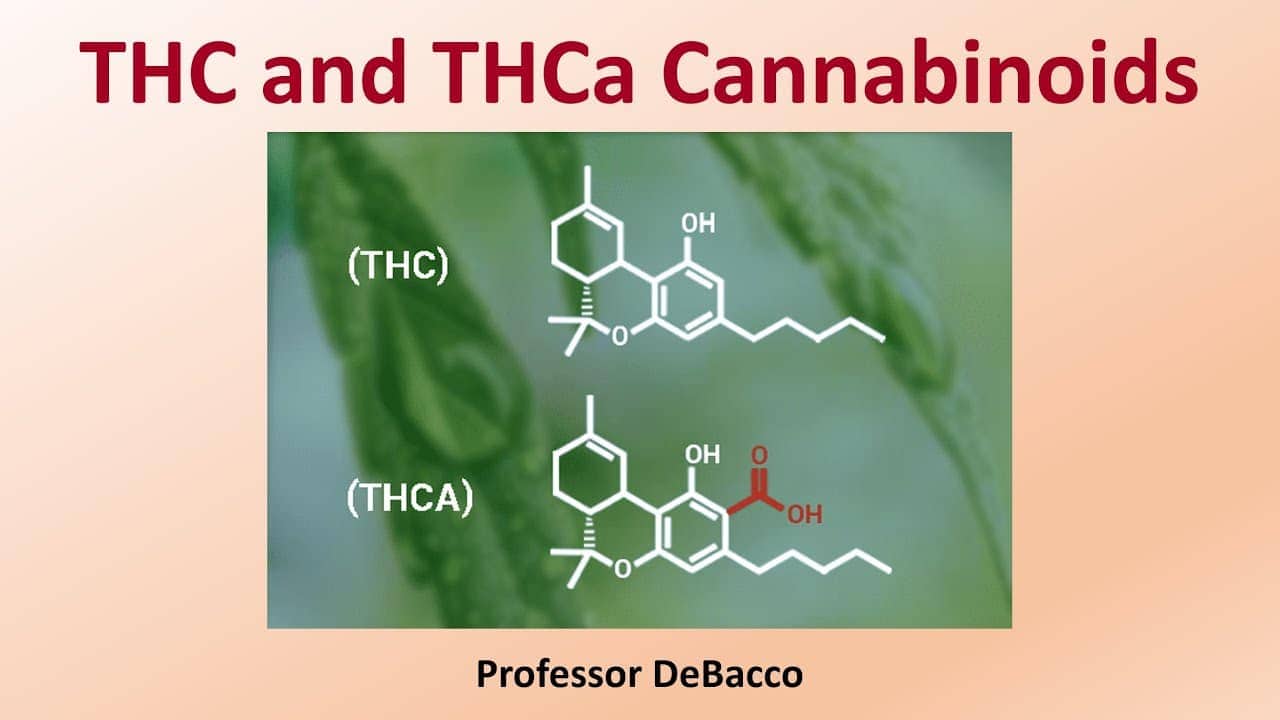
Recent advancements in cannabinoid science have shed light on the complexities and potential of compounds such as tetrahydrocannabinolic acid (THCa) and delta-9-tetrahydrocannabinol (delta-9 THC). Research has unlocked new aspects of these cannabinoids, leading to innovation in how they are understood and utilized.
- Decarboxylation Process: THCa, in its natural form, is a non-psychoactive precursor to delta-9 THC. Through a process known as decarboxylation, typically involving heat, THCa transforms into THC, which possesses psychoactive effects. Innovations in decarboxylation methods have optimized the conversion process, preserving the integrity of the cannabinoids.
- Therapeutic Perspectives: Investigations into THCa’s therapeutic properties have increased, with research hinting at its potential beyond being merely a THC precursor. This has encouraged a re-evaluation of THCa’s role in medical and health contexts.
- Analytical Techniques: Advancements in analytical methods such as UHPLC-UV-MS have fine-tuned the quantitative determination of cannabinoids, allowing for a more precise profiling of cannabis strains and understanding of cannabinoid ratios.
- Genetic Research: Through global research efforts, scientists now have a deeper comprehension of cannabis sativa’s genetic diversity. Utilizing near infrared-based chemometrics, researchers can quantify cannabinoid content more effectively, paving the way for strains high in specific cannabinoids.
Through innovation and research in cannabis science, you are witnessing an era of new possibilities in the therapeutic application of cannabinoids, understanding structural isomers, and optimizing the quality of cannabis-derived products.
Key Takeaways
When comparing THCa and delta-9-THC, there are several notable points to consider regarding their characteristics and effects:
- Cannabinoid Structure and Conversion:
- THCa is a non-psychoactive cannabinoid found in raw and live cannabis plants.
- Through a process called decarboxylation, THCa converts into delta-9-THC, the primary psychoactive compound in cannabis responsible for the ‘high’ feeling.
- Psychoactive Properties:
- Before decarboxylation, THCa does not interact with cannabinoid receptors in a way that produces psychoactive effects.
- Delta-9-THC binds to CB1 receptors in the brain, leading to psychoactive experiences.
- Legal Status and Accessibility:
- The legal status of THCa is typically less stringent because it is not psychoactive, but this can vary by region.
- In contrast, delta-9-THC is regulated or illegal in many jurisdictions due to its psychoactive nature.
- Consumption Methods:
- THCa is often consumed through raw cannabis products, like juices or salads.
- Delta-9-THC is most commonly inhaled or ingested after being activated through heat, as in smoking or vaporizing.
- Therapeutic Benefits:
- Both cannabinoids are discussed for their potential therapeutic benefits, though delta-9-THC has been more extensively researched in this area.
- They may offer relief for various conditions, although you should always consult with a healthcare provider for guidance based on your individual needs.
- Recreational Use:
- The recreational use of delta-9-THC is popular for its mind-altering effects.
- THCa, however, is not typically used recreationally due to the absence of intoxicating effects.
Remember, the information you encounter about cannabinoids may evolve as research progresses and laws change. Always stay informed and adhere to local regulations regarding consumption and use.
Frequently Asked Questions
In this section, you’ll find precise answers to common inquiries about the distinctions and effects of THCa and Delta-9-THC, their potency, and how they are processed by the body.
What are the differences in effects between THCa and Delta-9-THC?
THCa, or delta-9-tetrahydrocannabinolic acid, is a non-psychoactive cannabinoid found in raw and live cannabis. As it doesn’t produce a high, it contrasts with Delta-9-THC, which is known for its potent psychoactive effects.
Can THCa provide pain relief compared to Delta-9-THC?
Though research into THCa is still evolving, it’s believed to hold potential for pain relief without the psychoactive effects associated with Delta-9-THC.
What happens to THCa when it is exposed to heat, such as through smoking?
When THCa is exposed to heat via decarboxylation, it undergoes a chemical reaction, converting it into psychoactive Delta-9-THC.
How does the potency of THCa compare to that of Delta-9-THC?
Delta-9-THC is significantly more potent than THCa because of its psychoactive properties. THCa does not have psychoactive effects, making its potency difficult to compare in traditional sense related to a “high”.
Will the presence of THCa be detected in a standard drug test?
A standard drug test typically detects the presence of THC, not THCa. Although some tests may identify THCa, it is the Delta-9-THC content that is most commonly tested for legality and intoxication levels.
Is there a difference in the user experience when consuming THCa in edibles versus Delta-9-THC?
Yes, consuming THCa in edibles does not typically produce the psychoactive effect that one experiences with Delta-9-THC. The user may experience relief from symptoms such as inflammation without the high that comes with Delta-9-THC consumption.

